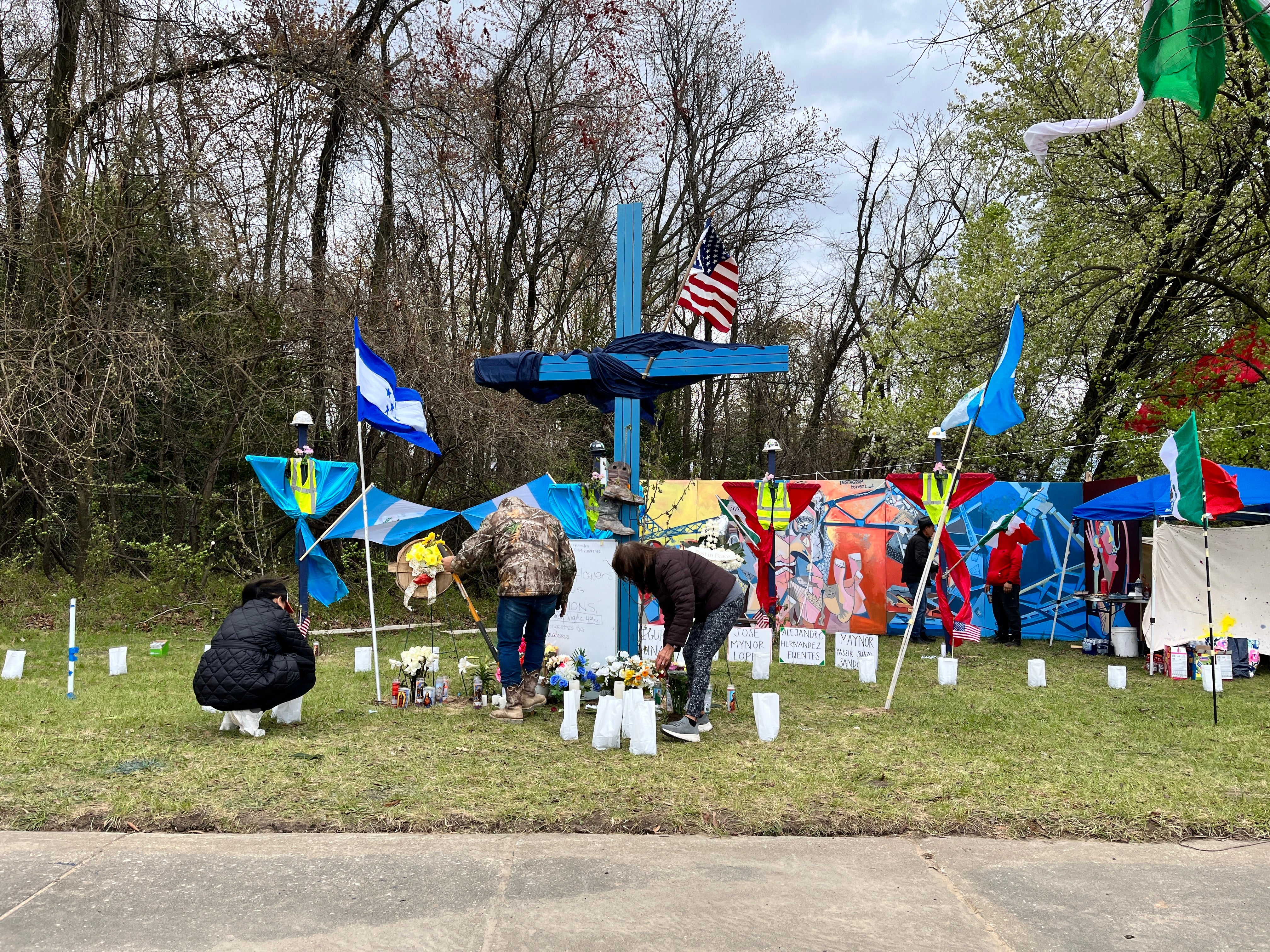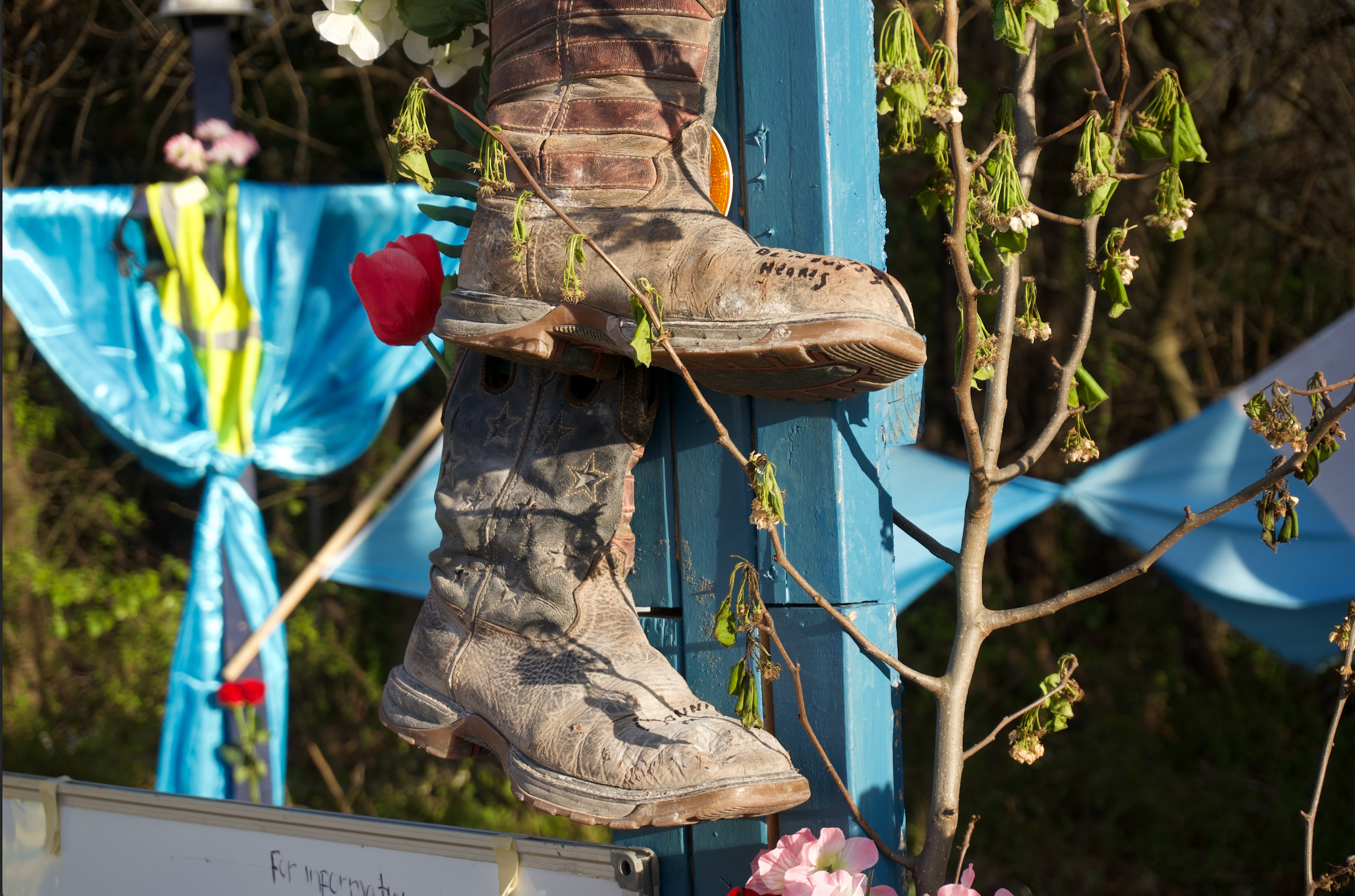Baltimore’s Latino community comes together to grieve victims of bridge collapse: ‘They don’t take care of us’
Mourners came together to honour the men at a weekend vigil
Your support helps us to tell the story
From reproductive rights to climate change to Big Tech, The Independent is on the ground when the story is developing. Whether it's investigating the financials of Elon Musk's pro-Trump PAC or producing our latest documentary, 'The A Word', which shines a light on the American women fighting for reproductive rights, we know how important it is to parse out the facts from the messaging.
At such a critical moment in US history, we need reporters on the ground. Your donation allows us to keep sending journalists to speak to both sides of the story.
The Independent is trusted by Americans across the entire political spectrum. And unlike many other quality news outlets, we choose not to lock Americans out of our reporting and analysis with paywalls. We believe quality journalism should be available to everyone, paid for by those who can afford it.
Your support makes all the difference.Nearly two weeks have passed since the Baltimore Key Bridge collapsed into the cold waters of the Patapsco River.
Eight men were on top of the structure when a cargo ship named “Dali” slammed into one of its columns on 26 March, sending at least seven of the men into the water below. One man was immediately saved from the river while another was rescued by nearby police.
Six of the men died. They came from Honduras, Guatemala, El Salvador and Mexico. At the time of the collapse, they’d been tasked with repairing potholes on the bridge.
Last month, officials retrieved the bodies of 35-year-old Alejandro Hernandez Fuentes and 26-year-old Dorlian Ronial Castillo Cabrera. On Friday, authorities found the body of Maynor Suazo Sandoval, a 38-year-old man from Honduras. The bodies of three other men, Miguel Luna, Jose Mynor Lopez, and Carlos Hernández remain missing.
As families wait for updates, the nearby Latino community has come together to offer their support. Fernando Sajche, 35, a nearby resident of Baltimore, helped erect a memorial to the victims at an intersection leading to the bridge, which has now been closed off to police.
The memorial consists of six crosses that represent the lives of each of the men, with hard hats and vis vests placed onto them. Bottles of Modelo and prayer candles are spread throughout. A sign reading “Find the missing” has been placed at the centre.
“We’re trying to show the community that we’re here to support everybody”, he said. “We want to show to this country who we are”.
Roberto Marquez, an artist living in Texas, drove up after the tragedy to paint a mural next to the memorial.
“These families that are suffering right now need to have somebody beside them,” he said. He stated that he wanted to donate the piece to an organisation or person willing to preserve it to honour the lives of the men.
On Saturday, the community held a candlelit vigil to honour the victims.
Mr Sajche said that he’d known Luna , one of the victims, because of his family’s food truck business that served Salvadorian food. He said he went to the spot every week with his friends but hasn’t been since the tragedy. He described the food as “delicious”, referring to a fried fish tray he particularly enjoyed.
Another one of the men at the vigil, Miguel Velasquez, 41, said that he’d played soccer with Luna. They’d greet each other and ask about the other’s lives. At times, he’d see Luna at the food truck.
He called the man “a good person”, adding that the community profoundly feels the loss of his life. “With the little that we’re able to do, we’re here to support their families, even if it’s with granite and sand”.
Keely Aranibar, a local funeral director, attended the vigil in an effort to get in touch with the relatives of the victims. She said she wanted to offer to direct their funeral for free despite not having a personal connection with any of the victims.
A funeral home she works with called Hubbard Funeral Home has expressed interest in helping the families offset the costs of the services. Daniel Simmons, the director, said he’s worried about the men being forgotten in this type of tragedy.
“The Spanish community, we’re very united,” Ms Aranibar said. “It doesn’t matter if you’re from Central America, South America, we speak the same language. Yes, we might have different accents. But they’re our people. We share the same blood.”
She added: “This is family to me”.

José Luis Juarez, 41, of Guatemala, got a lump in his throat while looking at the memorial. His family helped supply food for the event. He’s been in the construction industry for more than 10 years.
He said he wouldn’t help rebuild the bridge for a million dollars, stating the work is too dangerous. He added that he can’t begin to comprehend the pain the families are going through.
“Imagine all the days that have passed and they still haven’t found the bodies of the missing,” he said. “You imagine how the families are suffering. I have kids. I don’t want that to happen to them”.
Authorities called off recovery operations for the victims a day after the collapse, citing safety concerns for divers. Officials said divers would be sent out to look for remains once debris from the bridge collapse has been cleared. The body of Maynor Suazo Sandoval was discovered after that decision was made.
It’s expected that the channel will reopen to its normal capacity in May. If remains are found accidentally, all operations will stop and divers will recover the bodies. Still, they’re not actively searching for the deceased.
Mr Juarez said that migrants in the US are protected less than American workers. It’s expected that Latino workers will make up a large part of the construction industry that goes to work rebuilding the bridge. According to the most recent US Bureau of Labor data, Latinos make up 30 per cent of the industry and suffer 14 per cent of work-related fatalities.
“I think they don’t take care of us,” he said. “That’s what I think and it’s the truth”.


Join our commenting forum
Join thought-provoking conversations, follow other Independent readers and see their replies
Comments